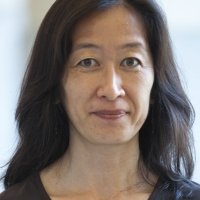Making Homes, Building Bases: The Politics of Domesticity in the U.S. Occupation of Okinawa

Since the 1995 rape incident in Okinawa involving a 12-year-old girl and three American servicemen, the trope of masculine domination and feminine subjugation has shaped much of the discussion concerning the U.S. military presence there. However, as Wilson Center Japan Scholar Mire Koikari noted at an Asia Program event on November 28, gender has played a far more complex role in the relationship between the United States and Okinawa.
Such complexity is evident in the politics of domestic reformism that flourished during the 1950s and 1960s, when the islands were still occupied by the United States after the Second World War. The U.S. occupation’s women’s club, established by American wives of military servicemen involved in the occupation, for example, played a central role in fostering people-to-people relationships with Okinawan women. Often, the activities of the club centered on domestic activities such as lessons on modern domestic homemaking techniques, in which Okinawan women enthusiastically participated. Club pamphlets celebrated the unique role women could play in shaping opinion towards U.S. goals in Okinawa. Nevertheless, occupation forces downplayed the political nature of the club activities by framing them as “feminine, domestic, and therefore innocent.”
Collaborating with Japanese and Okinawan home economists, American domestic experts, particularly from Michigan State University, were also recruited by the military to penetrate deep into the islands’ domestic sphere. University academics taught scientific methods of housekeeping to middle-class Okinawan women who often embraced the lessons whole-heartedly. American female home economics experts in Okinawa also pressed for greater conditions in home economics laboratories in Okinawa and sufficient classrooms for women at male-dominated university campuses on the island territory. According to Koikari, such efforts to modernize the domestic sphere were part of a broader American policy of positioning postwar science and technical assistance in a way that countered charges of U.S. Cold War policies as imperialistic.
However, such policies were still a distinct attempt to co-opt women into American Cold War structures. Indeed, the American experts involved in this project were not just focused on Okinawa, but extended their reach to Hawaii, Taiwan, and the Philippines, creating a transnational network of home economists to mobilize women for Cold War cultural and political ends. Moreover, domesticity and the notion of a “good wife and wise mother” had been a central tenet of state propaganda during Japan’s own colonial period. Middle class home economists on Okinawa who had flourished during the prewar regime thus found that following American examples allowed them to succeed in the postwar as experts in their field, this time operating under a new narrative of emancipation and democratic development. Identification with American post-war domesticity thus served to conveniently erase their connection with the Japanese wartime regime.
By Bryce Wakefield
Robert M. Hathaway, Director, Asia Program
Speaker

Associate Professor, Women’s Studies, University of Hawaii.
Hosted By

Indo-Pacific Program
The Indo-Pacific Program promotes policy debate and intellectual discussions on US interests in the Asia-Pacific as well as political, economic, security, and social issues relating to the world’s most populous and economically dynamic region. Read more
